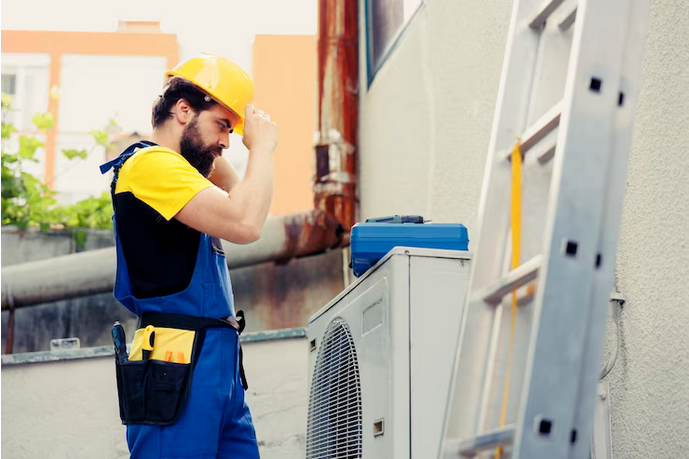Introduction
Boca Raton, a picturesque city in South Florida, is known for its beautiful beaches, vibrant culture, and warm weather. While the pleasant climate is undoubtedly a major attraction, it also means that air conditioning (AC) is a necessity for residents and businesses alike. A malfunctioning AC unit can quickly turn a comfortable living space or workplace into an unbearable environment, especially during the scorching summer months. This guide aims to provide residents of Boca Raton with valuable tips and tricks for AC repair, helping them stay cool and comfortable year-round.
Understanding the Basics of Your AC System
Before diving into repair tips, it's essential to have a basic understanding of how your AC system works. Most residential AC systems consist of two main components: the indoor unit (evaporator coil and blower) and the outdoor unit (condenser coil and compressor). The indoor unit circulates cool air inside your home, while the outdoor unit releases heat into the outside air. Refrigerant is the key element that absorbs heat and cools the indoor air.
Regular Maintenance for Optimal Performance
Prevention is often the best medicine, and this holds true for your AC system. Regular maintenance is critical to ensure your AC unit operates efficiently and lasts longer. Here are some maintenance tips:
Change Air Filters: Dirty filters restrict airflow, reducing efficiency and causing strain on the system. Replace or clean filters every 1-3 months.
Clean the Condenser and Evaporator Coils: Over time, these coils can accumulate dirt and dust, reducing heat exchange. Annual cleaning helps maintain efficiency.
Inspect and Tighten Electrical Connections: Loose connections can lead to system failures or reduced performance. Periodically check and tighten electrical connections.
Check Refrigerant Levels: Low refrigerant levels can indicate a leak and reduce cooling efficiency. Consult a professional if you suspect a refrigerant issue.
Clear Debris Around Outdoor Unit: Ensure there's no debris, leaves, or vegetation obstructing the outdoor unit's airflow.
Common AC Problems and DIY Troubleshooting
Despite regular maintenance, AC problems can still occur. Here are some common issues and steps for DIY troubleshooting:
AC Not Cooling: Check the thermostat settings to ensure it's set to the desired temperature. Inspect the air filters for clogs, and clean or replace them if necessary.
Weak Airflow: Dirty or clogged air filters are often the culprit. Replace or clean filters, and make sure there are no obstructions in the vents.
Strange Noises: Unusual noises like grinding, squealing, or banging can indicate issues with the blower motor or fan. Turn off the AC and consult a professional for repairs.
AC Leaks Water: A clogged condensate drain line can cause water leakage. Check the drain line for blockages and clear them if necessary.
AC Not Turning On: Ensure the thermostat is set to "cool" and the temperature is lower than the current room temperature. If it still doesn't turn on, check the circuit breaker and fuse box for tripped switches or blown fuses.
When to Call a Professional
While some AC issues can be resolved with DIY troubleshooting, others require the expertise of a professional HVAC technician. Here are some situations where it's best to call for professional AC repair:
Refrigerant Leak: Handling refrigerant is dangerous and requires special equipment. If you suspect a leak, contact a professional immediately.
Electrical Problems: Any issues with electrical components should be left to a licensed technician to avoid safety hazards.
Compressor or Motor Failure: These are complex components that should only be serviced by professionals.
Inadequate Cooling: If your AC unit consistently fails to cool your home, it may have underlying issues that require professional diagnosis and repair.
Frequent Cycling: If your AC frequently turns on and off (short cycling), it can waste energy and damage the system. This may require professional attention.
Choosing the Right AC Repair Service
When you do need professional AC repair in Boca Raton, it's important to choose the right service provider. Here are some tips for selecting a reliable AC repair company:
Research and Reviews: Look for online reviews and testimonials from previous customers to gauge the reputation of the company.
Licensing and Certification: Ensure the technicians are licensed and certified to work on HVAC systems in Florida.
Experience: Choose a company with a track record of successful AC repairs and installations.
Warranty: Inquire about warranties on parts and labor. A reputable company should stand behind its work.
Transparent Pricing: Request a detailed estimate in writing, including all costs and fees, before agreeing to any repairs.
Emergency Services: Select a company that offers 24/7 emergency AC repair services, especially during the hot summer months.
Conclusion
Maintaining a functional AC system in Boca Raton is essential for comfort and well-being. Regular maintenance and DIY troubleshooting can help keep your AC unit running smoothly, but there are times when professional AC repair becomes necessary. When selecting an AC repair service, it's crucial to do your research, check for licensing and certification, and consider factors such as experience and warranties. By following the tips and tricks outlined in this guide, residents of Boca Raton can ensure their AC systems are in top-notch condition, providing relief from the heat and humidity of South Florida's climate. Stay cool and comfortable year-round with a well-maintained and efficiently operating AC system.





Comments